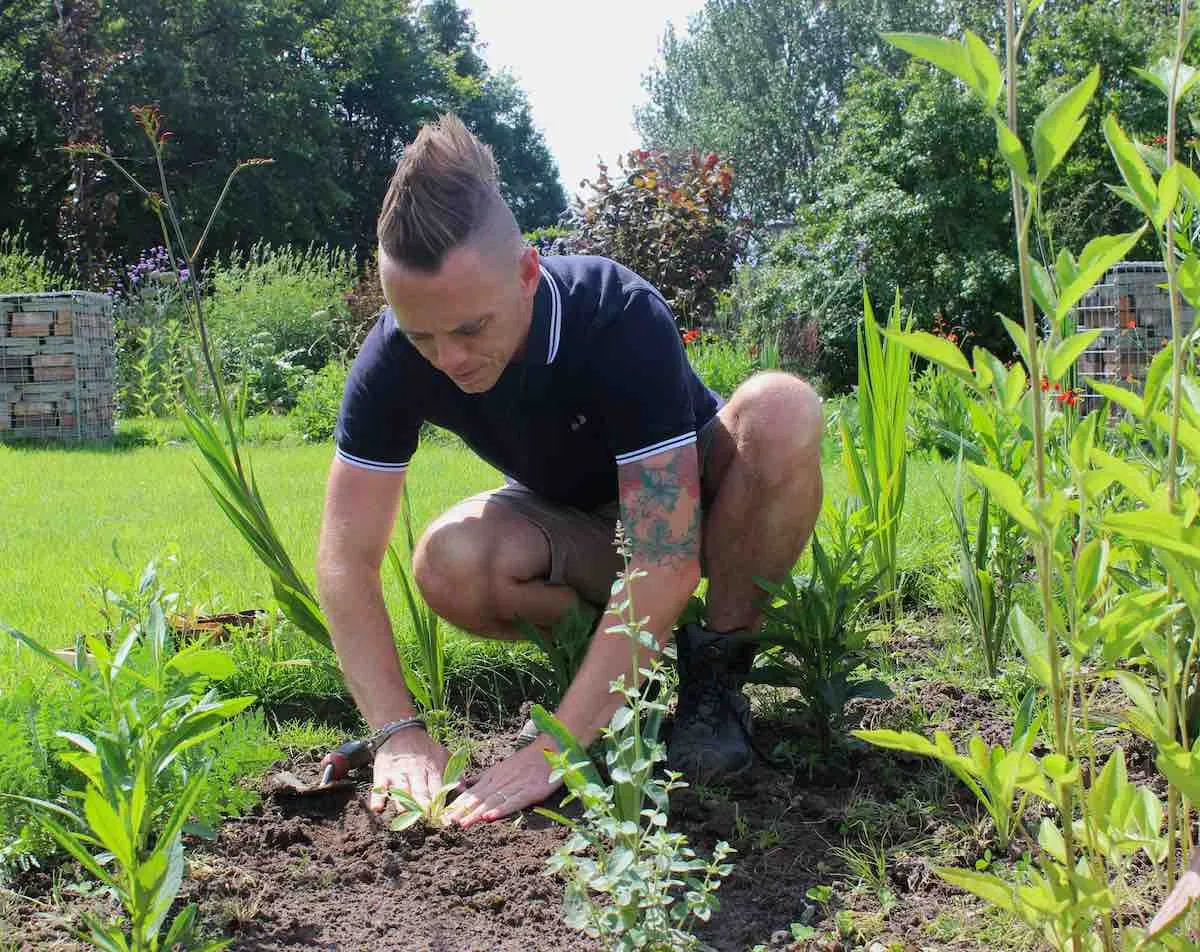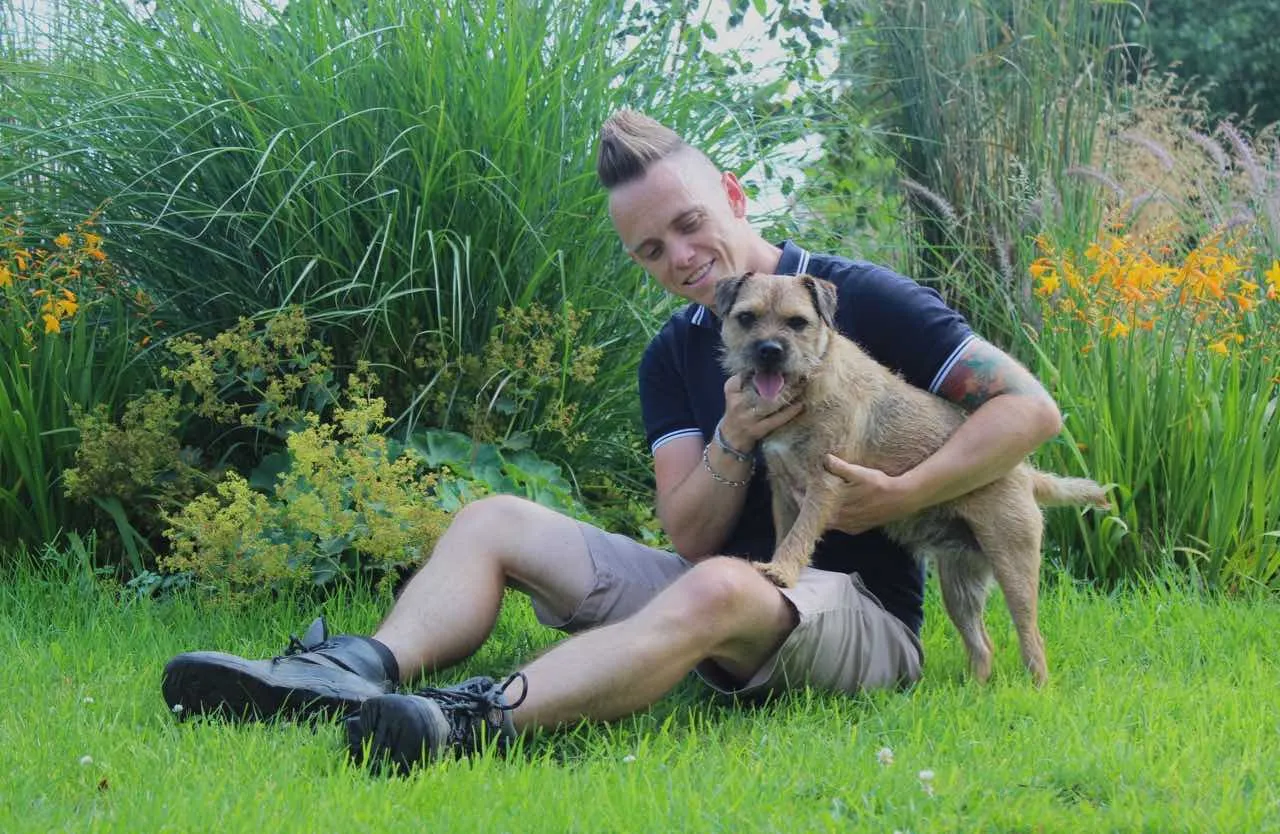Hi @desterman
Thanks for your comment on lawns and weeds.
Don't worry about harming turf when manually removing weeds, lawns are made up of some of the toughest plant species around. Grasses will easily regenerate and most of them actually respond well to damage. By damaging the grass's roots with practices such as scarification it urges the grass rhizomes to send out new shoots. So a bit of rough raking and manual weed removal can be a good thing for lawns.
Whats the best way to remove weeds from lawns?
Whilst some gardeners use chemicals and herbicides I prefer not to as they're really bad for the wider eco system. So unless a lawn is totally overwhelmed by weeds I use the manual method. I also don't mind having the odd weed in my lawn as they are super beneficial for wildlife like honey bees and hoverflies. Especially clover when it's in flower.
The manual organic weeding method involves using a weeder or Japanese weeder to remove and pop out the roots of each weed. The video guide below shows you first-hand how to do this.
https://youtu.be/4WIDSCJ4o6M
What I would say looking at your lawn though is that it's been overtaken by a number of weeds, one with the circular leaves being Dollarweed or Penny weed (Hydrocotyle umbellata). This loves compacted and damp ground so to prevent the weed in the future you may need to aerate your lawn with a scarifier or garden fork to improve drainage.
https://youtu.be/8oeYfHJvmsQ
What I would say is that the lawn looks to me to be primarily weed based, so if I were you I'd dig out all of the weeds and relay your law either from seed or from rolled turf so you're starting from a solid place of success. Trying to remove all that weed will leave you with lots of bare earth so easy to just dig it over with a fork, sieve out the weeds and then level and sow lawn seed. You can read my 'How to sow a lawn' guide here for more tips.
https://youtu.be/sWLp_Y2rvJ4
As for the vines, I very much doubt the weeds are killing them, more that they lose their leaves in the winter and colder months anyway as they are deciduous. So don't panic too much about them!
Do let us know how you get on and happy gardening!
Lee - Garden Ninja
Hi @desterman
Thanks for your comment on lawns and weeds.
Don't worry about harming turf when manually removing weeds, lawns are made up of some of the toughest plant species around. Grasses will easily regenerate and most of them actually respond well to damage. By damaging the grass's roots with practices such as scarification it urges the grass rhizomes to send out new shoots. So a bit of rough raking and manual weed removal can be a good thing for lawns.
Whats the best way to remove weeds from lawns?
Whilst some gardeners use chemicals and herbicides I prefer not to as they're really bad for the wider eco system. So unless a lawn is totally overwhelmed by weeds I use the manual method. I also don't mind having the odd weed in my lawn as they are super beneficial for wildlife like honey bees and hoverflies. Especially clover when it's in flower.
The manual organic weeding method involves using a weeder or Japanese weeder to remove and pop out the roots of each weed. The video guide below shows you first-hand how to do this.
What I would say looking at your lawn though is that it's been overtaken by a number of weeds, one with the circular leaves being Dollarweed or Penny weed (Hydrocotyle umbellata). This loves compacted and damp ground so to prevent the weed in the future you may need to aerate your lawn with a scarifier or garden fork to improve drainage.
What I would say is that the lawn looks to me to be primarily weed based, so if I were you I'd dig out all of the weeds and relay your law either from seed or from rolled turf so you're starting from a solid place of success. Trying to remove all that weed will leave you with lots of bare earth so easy to just dig it over with a fork, sieve out the weeds and then level and sow lawn seed. You can read my 'How to sow a lawn' guide here for more tips.
As for the vines, I very much doubt the weeds are killing them, more that they lose their leaves in the winter and colder months anyway as they are deciduous. So don't panic too much about them!
Do let us know how you get on and happy gardening!
Lee - Garden Ninja
 Lee Burkhill: Award Winning Designer & BBC 1's Garden Rescue Presenters Official Blog
Lee Burkhill: Award Winning Designer & BBC 1's Garden Rescue Presenters Official Blog



